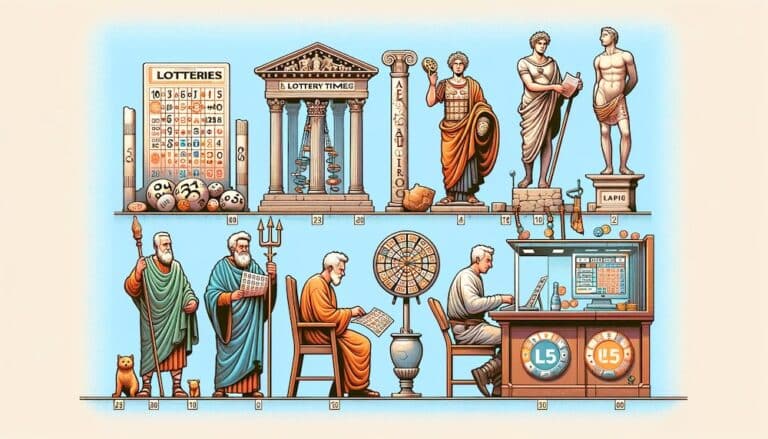Lotteries have captivated human interest for centuries, evolving from simple drawings in ancient civilizations to sophisticated, multi-million-dollar jackpots in the modern era. The history of lotteries is as rich and varied as the games themselves, reflecting cultural, social, and technological changes over time. Let’s explore the fascinating journey of lotteries through history.
Ancient Beginnings
The concept of lotteries dates back to ancient times, with evidence of lottery-like games in China, Rome, and other civilizations. The Han Dynasty in China (205-187 BC) used keno slips to finance major state projects, such as the Great Wall of China. In the Roman Empire, lotteries were held at dinner parties, where guests received tickets for a chance to win prizes, ranging from valuable goods to slaves.
The Rise of Public Lotteries
The first recorded public lottery in the West was held in the Low Countries (present-day Belgium, Netherlands, and Luxembourg) in the 15th century. These lotteries raised funds for town fortifications, charitable causes, and to help the poor. The concept quickly spread across Europe, with various countries adopting lotteries for similar purposes.
Lotteries in the New World
Lotteries played a significant role in financing the early American colonies. The Virginia Company of London, for instance, used a lottery in 1612 to fund the settlement in Jamestown, Virginia. Throughout the 17th and 18th centuries, lotteries funded schools, churches, libraries, and even universities like Harvard and Yale.
The Evolution of Modern Lotteries
The 20th century saw the transformation of lotteries into the large-scale, government-run games we know today. The introduction of computerized systems in the 1970s and 1980s revolutionized the industry, allowing for larger jackpots, better odds, and more complex games. Today, lotteries are a global phenomenon, with players from all corners of the globe dreaming of hitting the jackpot.
The Impact of Lotteries
Beyond their entertainment value, lotteries have had a significant impact on society. They have funded public projects, education, and charitable causes, contributing billions to economies worldwide. However, they have also sparked debates on morality, addiction, and the socio-economic implications of gambling.
Conclusion
The history of lotteries is a testament to human fascination with chance, luck, and the dream of sudden wealth. From ancient keno games to today’s multi-national mega jackpots, lotteries have evolved to become a staple of modern culture and entertainment. As technology advances, the future of lotteries promises even more innovation, continuing the centuries-old tradition of dreaming big.

Garry Sputnim is a seasoned journalist and storyteller with over a decade of experience in the trenches of global news. With a keen eye for uncovering stories that resonate, Alex has reported from over 30 countries, bringing light to untold narratives and the human faces behind the headlines. Specializing in investigative journalism, Garry has a knack for technology and social justice issues, weaving compelling narratives that bridge tech and humanity. Outside the newsroom, Garry is an avid rock climber and podcast host, exploring stories of resilience and innovation.


